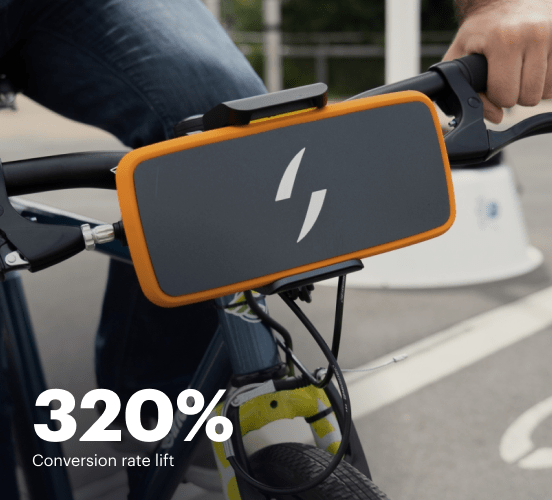How Zoho vs. Form.io vs. Instapage stack up against each other
Compare Instapage with Zoho and Form.io to create high-converting landing pages. With personalization, optimization, and collaboration tools, Instapage helps you deliver experiences that drive results.
Get startedSee how Instapage stacks up against the competition
| Feature | Instapage | Other builders |
| Drag-and-Drop Tools | ||
| Conversion-optimized templates | ||
| Manual and AI-powered A/B Tests | ||
| AI content suggestions | ||
| Popups and sticky bars | ||
| Canvas and grid blocks | ||
| Reusable and global elements | ||
| Form and popup builders | ||
| Built-in Heatmaps | ||
| Central analytics dashboard | ||
| Ad-to-page personalization and collections | ||
| Contacts, lists, and email | ||
| Dedicated, full-service CRO experts | ||
| Enterprise-ready platform |
Leading the way in building high-performing landing pages





Why Instapage is the smarter choice for your campaigns
Get everything you need to build, scale, and optimize high-converting landing pages—without coding.
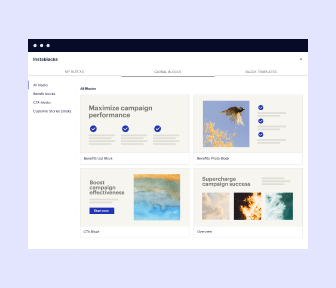
Easier page building without coding
Instapage offers a flexible and seamless page creation experience with a library of 500+ conversion-focused layouts, Instablocks®, a drag-and-drop builder, and AI content generation. With technologies like Thor Render Engine®, you can create on-brand, mobile-responsive landing pages that load quickly and start converting during initial visitor clicks.
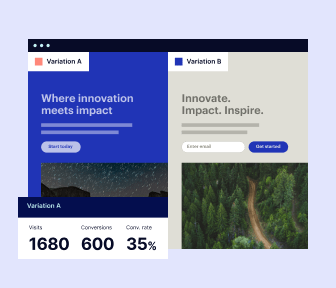
More insights — better results
Instapage lets you see in detail how each landing page experience and variation is performing so you can make targeted changes that boost page conversions. Use heatmaps for a better understanding of on-page activities, run A/B tests and AI-assisted experiments, and then track and evaluate results within robust analytics dashboards.
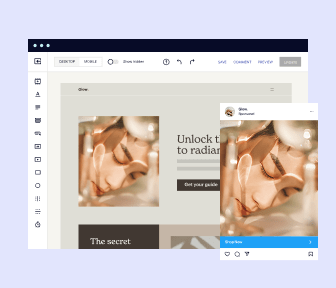
More personalized experiences
Instapage lets you quickly create high-performing landing pages tailored to each of your ad campaigns. Deliver personalized experiences for distinct audiences using dynamic text replacement. Effortlessly align specific advertisements to unique pages with AdMaps. Monitor audience-level metrics using our advanced data tools.
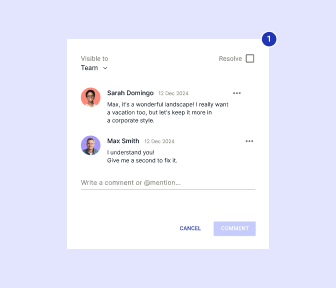
Built-in collaboration
Instapage collaboration capabilities bring your entire team together to speed up the process of landing page review, approval, and launch. No more frustrating and unnecessary revisions or edits scattered across emails. Provide instant feedback, conduct real-time page edits, and securely share your pages with outside stakeholders.
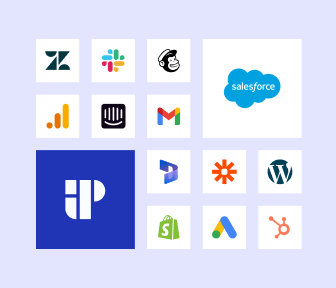
Free up time for your business
Invest time into business growth, not busy work. Launch landing pages faster with reusable forms and templates. Build once, reuse forever.
Explore all integrations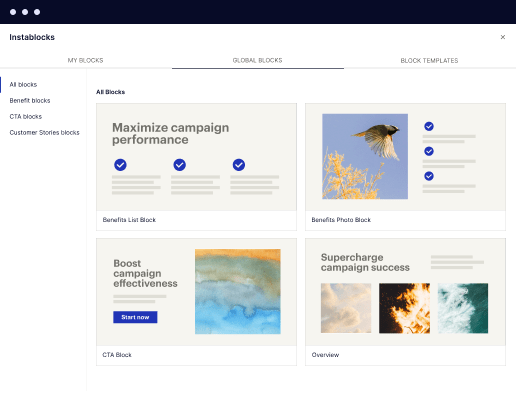
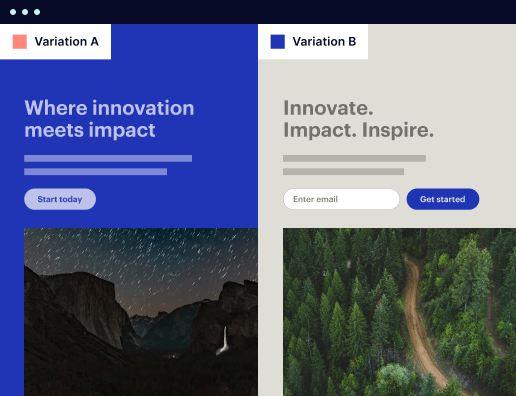
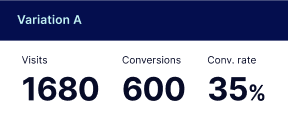
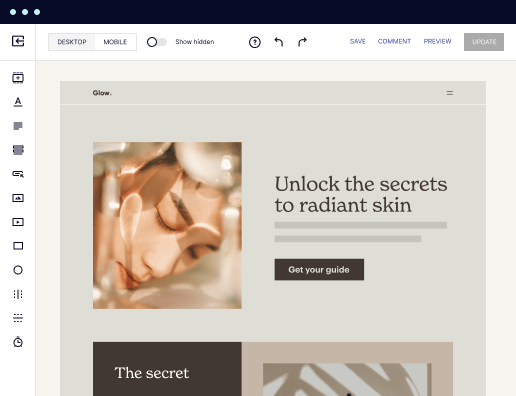

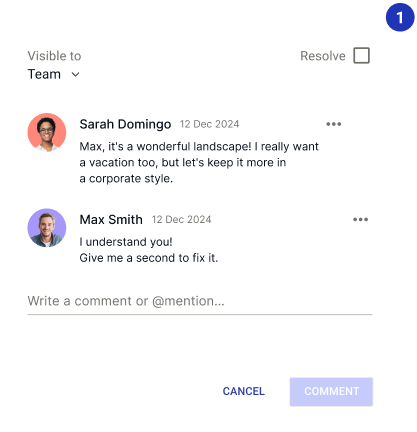
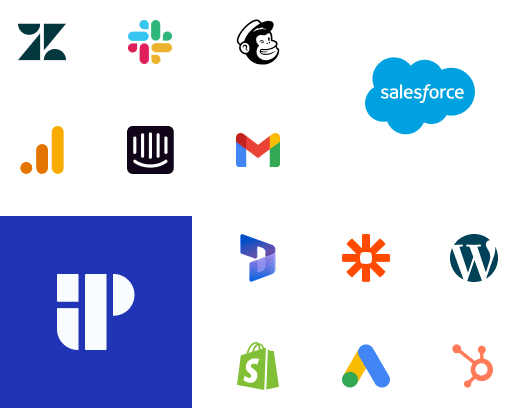
Easier page building without coding
Instapage offers a flexible and seamless page creation experience with a library of 500+ conversion-focused layouts, Instablocks®, a drag-and-drop builder, and AI content generation. With technologies like Thor Render Engine®, you can create on-brand, mobile-responsive landing pages that load quickly and start converting during initial visitor clicks.
More insights — better results
Instapage lets you see in detail how each landing page experience and variation is performing so you can make targeted changes that boost page conversions. Use heatmaps for a better understanding of on-page activities, run A/B tests and AI-assisted experiments, and then track and evaluate results within robust analytics dashboards.
More personalized experiences
Instapage lets you quickly create high-performing landing pages tailored to each of your ad campaigns. Deliver personalized experiences for distinct audiences using dynamic text replacement. Effortlessly align specific advertisements to unique pages with AdMaps. Monitor audience-level metrics using our advanced data tools.
Built-in collaboration
Instapage collaboration capabilities bring your entire team together to speed up the process of landing page review, approval, and launch. No more frustrating and unnecessary revisions or edits scattered across emails. Provide instant feedback, conduct real-time page edits, and securely share your pages with outside stakeholders.
Free up time for your business
Invest time into business growth, not busy work. Launch landing pages faster with reusable forms and templates. Build once, reuse forever.
Explore all integrationsGet started with Instapage in a few steps
-
Create your Instapage account
Start with Instapage by signing up via Google or your email. You'll get access to a free 14-day trial to discover Instapage capabilities. Feel free to cancel anytime during the 14-day trial if you decide that our product is not suitable for your business. -
Build and personalize your page
Create your first landing page from scratch or choose a template from 500+ customizable layouts. Use the drag-and-drop builder to add page elements, fonts, and backgrounds, refine content with AI, or add custom HTML, Javascript, and CSS. -
Review and make edits
Collaborate on page designs and streamline review processes. Invite your team members and stakeholders to review, edit, and provide feedback on your landing page. Collaborate knowing your page is confidential and only accessible to authorized users. -
Publish and track page performance
Publish your page to a domain or custom URL. Connect your pages to the ads you've created and track page performance within the analytics dashboard, run A/B tests and AI experiments, analyze results, and continuously optimize your landing page to maintain high conversions.
Instapage vs. Zoho vs. Form.io – The Ultimate Showdown
Choosing the right landing page builder feels like selecting your team's dream players for an ultimate championship. Each tool offers unique strengths and capabilities, crucial for winning the game of online marketing. In this article, we aim to put three leading contenders—Instapage, Zoho, and Form.io—against each other in a friendly yet insightful competition. Get ready to explore their strengths and weaknesses as we help you find the best fit for your marketing strategy. Picture this: your landing page is the frontline of your business; it needs to be optimized for performance, user engagement, and conversion. Every choice you make with these builders can affect your ROI and brand perception. All three platforms promise efficiency and robust features, but who will claim victory? Join us as we break down their offerings in various rounds to crown the best landing page builder.
Meet Our Competitors: A Glimpse at Your Options
In the left corner, we have Instapage, renowned for its powerful features that help marketers create high-converting landing pages effortlessly. Its emphasis on customization and robust analytics sets it apart, making it a go-to choice for businesses focused on growth. Next, we have Zoho, part of the broader Zoho suite, which offers a versatile approach to landing page creation, integrated with other tools for enhanced workflow. Meanwhile, Form.io enters the ring with a powerhouse subscription-based model that provides a flexible form-building solution integrated with advanced data handling features. Together, these three platforms represent a mix of strengths: cost-effectiveness, usability, and technical capability. They may compete in the same arena, but each excels in its own way, providing unique tools for different marketing goals and strategies.
First Round - Feature Showdown: Who Offers More?
Template Selection and User-Friendliness
When it comes to features, all platforms present diverse options, but the usability of these features can make all the difference. Instapage boasts a vast library of fully customizable templates, enabling marketers to create visually stunning pages without needing any coding skills. The drag-and-drop interface is straightforward, ensuring users can build pages quickly and intuitively. Zoho, conversely, offers a variety of templates too, but with a focus on integration with other tools like Zoho CRM and email. The usability may not be as smooth as Instapage, potentially requiring a slight learning curve for newcomers, yet it allows seamless incorporation into broader marketing strategies. Form.io shines in technical capabilities, offering a flexible environment suitable for developers. Its form-enhanced templates cater to sophisticated needs but are less user-friendly for those unfamiliar with coding. All these features showcase the platforms' strengths, but Instapage stands out by prioritizing a user-centric approach and soaring customization potential.
Instapage: Your Partner in Customization and Conversion Boosting
With Instapage, marketers aren’t just given a tool; they receive a full partner in driving conversions. The platform’s seamless integration of A/B testing, heatmaps, and advanced analytics enhances the entire landing page experience. Each template can be fine-tuned to meet specific audience needs, which is essential for maintaining relevance and engagement. Notably, Instapage allows for exceptional customization down to the pixel level, giving marketers control that can lead to significant conversion rate improvements. Also, the collaborative features enable teams to work together efficiently, reducing costs associated with inefficiencies. This capability fosters not just brand trust but also cultivates customer loyalty over time, further leading to an increase in conversion rates. Instapage provides what digital marketers need to enhance their strategies with robust tools designed for success.
Second Round - Speed and Performance: Who Holds Fast?
In the era of instant gratification, the loading speed of your landing page can either delight or deter visitors. Imagine walking into a café and being stuck in line; that kind of frustration translates to online users as well. Speed isn’t just about convenience; it impacts bounce rates, search rankings, and ultimately conversions. A slow-loading page may lose potential customers before they even discover your offering, making this round pivotal.
Instapage Advantages:
- Optimized images and assets ensure fast loading times.
- Customizable content delivery networks to enhance performance.
- Built-in caching mechanisms are implemented to speed up repeat visits.
- Responsive design ensures that pages load smoothly across devices.
Zoho Advantages:
- Integrated caching features that optimize page loading.
- Connection to the overall Zoho suite boosts operational speed.
- Use of lightweight design principles for faster performance.
Form.io Advantages:
- Efficient backend processing to handle multiple submissions.
- Dynamic form elements that are lightweight yet functional.
- Caching of form data speeds up access for users.
In this critical category, Instapage proves to be the strongest contender due to its dedicated speed optimization features tailored for landing pages. While Zoho and Form.io offer solid performance characteristics, Instapage's attention to detail regarding load times sets it apart as the preferred choice for marketers focused on maximizing their audience outreach.
Third Round - Usability and Learning Experience
Usability is paramount; after all, how quickly someone can navigate and learn a platform can define their overall success. Instapage shines with its user-friendly layout that caters to all skill levels, making newcomers feel welcomed while also providing tools sophisticated enough for experienced marketers. The plethora of tutorial resources and a robust community forum means help is always just a click away. Zoho takes a more integrated approach, meaning that while it may have a steeper learning curve, its diverse tool offerings can create a comprehensive experience once mastered. Form.io, although flexible and powerful, caters more to developers. This aspect could prove challenging for non-technical users, though it offers an extensive support system for those willing to explore its capabilities. In our hearts, the competition may be stiff, but Instapage takes the crown for usability, as its platform encourages growth without the intimidation factor.
Fourth Round - Support and Assistant Community
Customer support often feels like having a loyal friend by your side, ready to help when challenges arise. When we think about support, Instapage is often seen as the go-to for timely assistance through chat, email, and phone support. Additionally, they host an active community forum that’s teeming with insights and tips. Zoho also provides a range of support options, though response times may vary due to the vast array of services they offer. Form.io takes pride in its technical support, catering to queries specific to integration and programming, ensuring developers have a reliable resource. While all contenders have their unique support strengths, Instapage's emphasis on user support creates a culture of reassurance among its users, making them feel valued and understood.
Fifth Round - Pricing Strategies and Models
Pricing is often the determining factor when selecting a landing page builder. Instapage offers flexible pricing models that cater to various business sizes, enabling smaller companies to access professional tools without overspending. Zoho’s pricing is appealing for businesses already invested in its suite, allowing for discounts on combined services. Form.io has a unique pricing model based on usage, making it viable for projects needing tailor-fit solutions. Ultimately, the financial aspect boils down to individual needs; evaluating potential growth against features is crucial for making the best choice. With such varied options on the table, one thing remains clear: understanding your specific requirements will guide you in making a sound investment.
As we finalize this thorough comparison, it’s crucial to note that all three platforms present distinct advantages to different user types. The choice ultimately hinges on what specific features and benefits align with your goals. Instapage not only delivers an exceptional product but fosters a deeper connection with your audience through effective landing page experiences. To fully grasp the potential impacts of these tools, we encourage you to consider a free trial or demo, especially for Instapage, to discover firsthand how it can enhance your marketing strategy.

